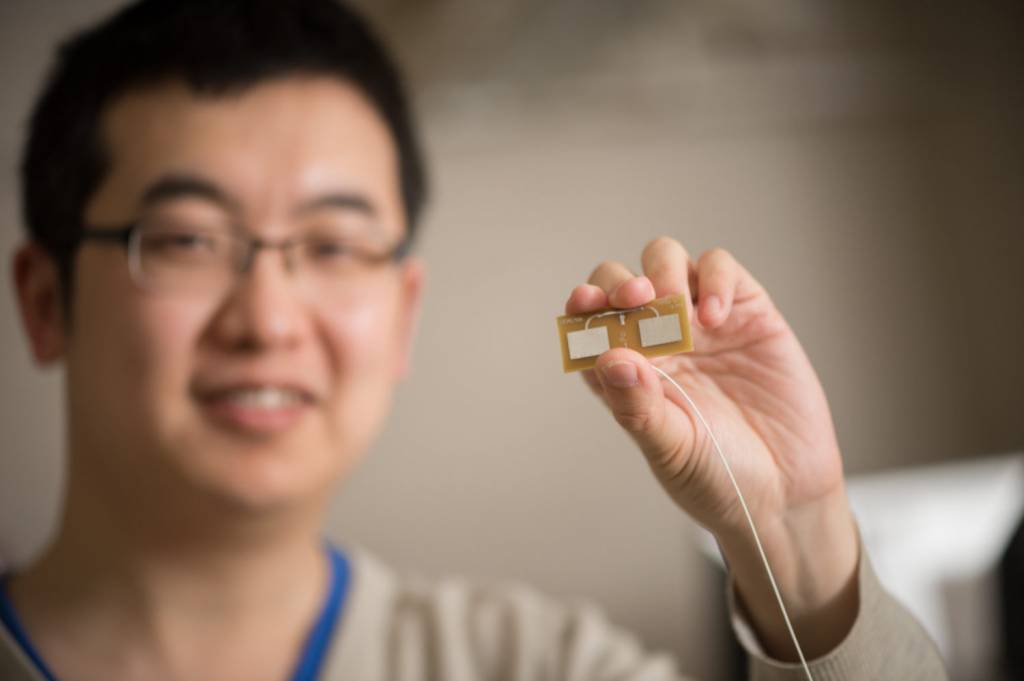A health wearable in development at Michigan State University with collaboration from Bell Labs could provide doctors with a complete and impartial picture of patients suffering from obesity, diabetes or asthma.
The wearable, which is called HeadScan, sticks to the patient’s shoulders and bounces radio waves off their head. The radio waves can capture all sorts of things, like eating, drinking, coughing, and speaking, which can be valuable information for a doctor to analyse.
See Also: Energous hearing aid charging tech keeps you listening
“HeadScan uses wireless radio signals to sense the targeted activities and provides a nonintrusive and privacy-preserving solution that overcomes the drawbacks of current wearable technologies,” said Mi Zhang, an assistant professor and head of the project, to MSU Today.
Doctors would be able to find out if a patient suffering from obesity is sticking to a diet plan and can even figure out if the patient is suffering from depression, by analysing the way they converse with others.
“Dietary monitoring is important. However, humans are not good at tracking these sorts of things. Fortunately computers are,” said Zhang.
Monitoring in the past has been challenging
Health monitoring equipment in the past has been either far too cumbersome or far too intrusive. HeadScan is already a major improvement on weight and size, and Zhang believes it improves on the privacy too:
“Existing technology often uses cameras and microphones to measure this, which can track your voice as well as others around you. This offers a lot more privacy.”
Wearables were cited as one of the most substantially beneficial emerging technologies for medical trials, so we should expect to see wearables like HeadScan adopted by more doctors in the near future. The question, for medical professionals, is how to balance the influx of available information with user privacy and consent, a balance the technology industry has struggled to manage.





















